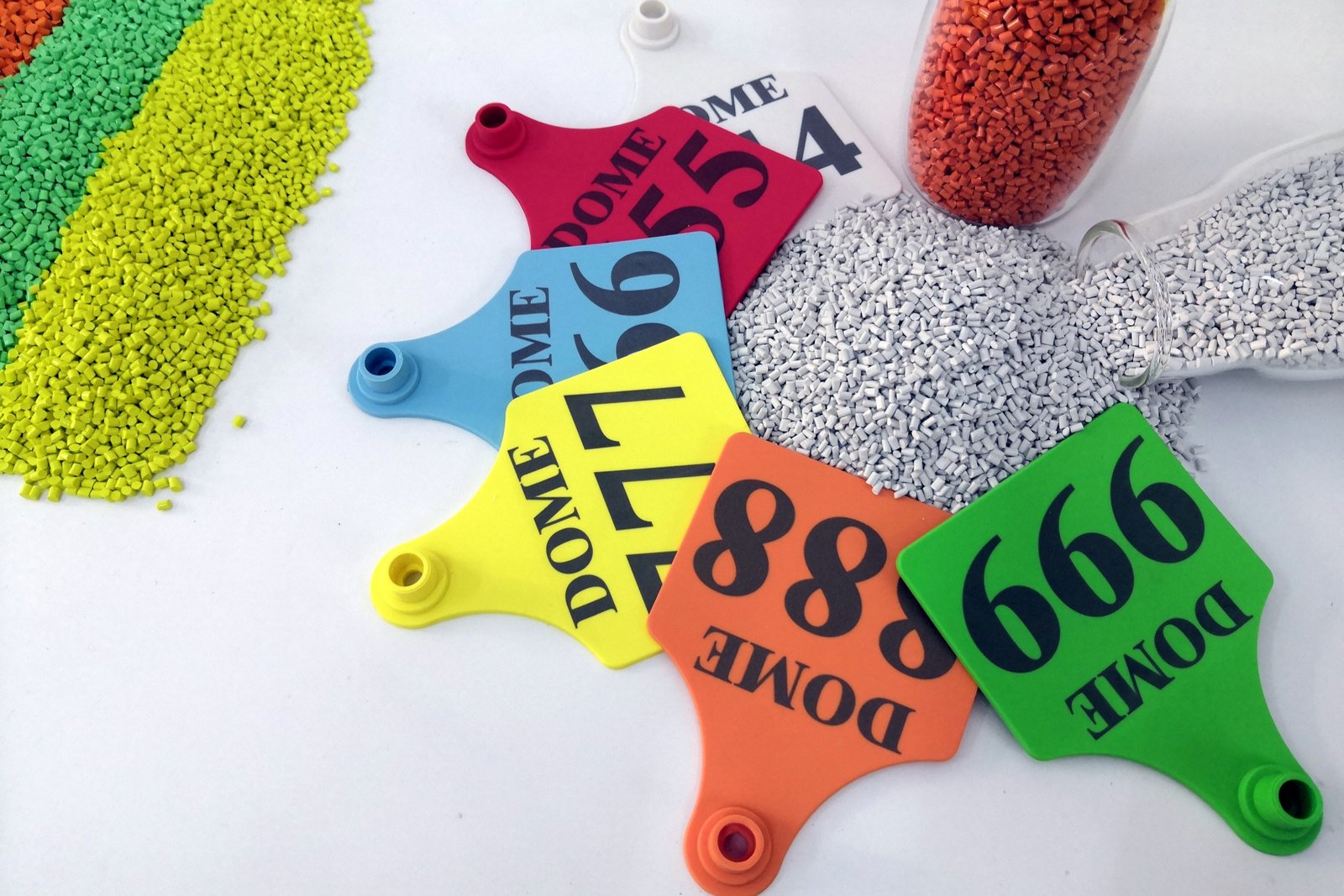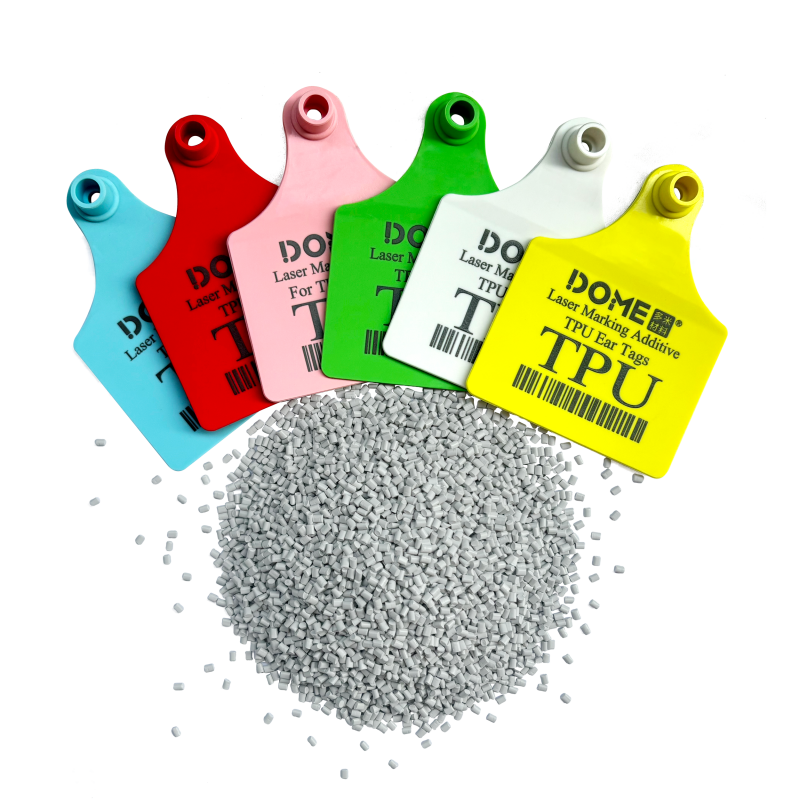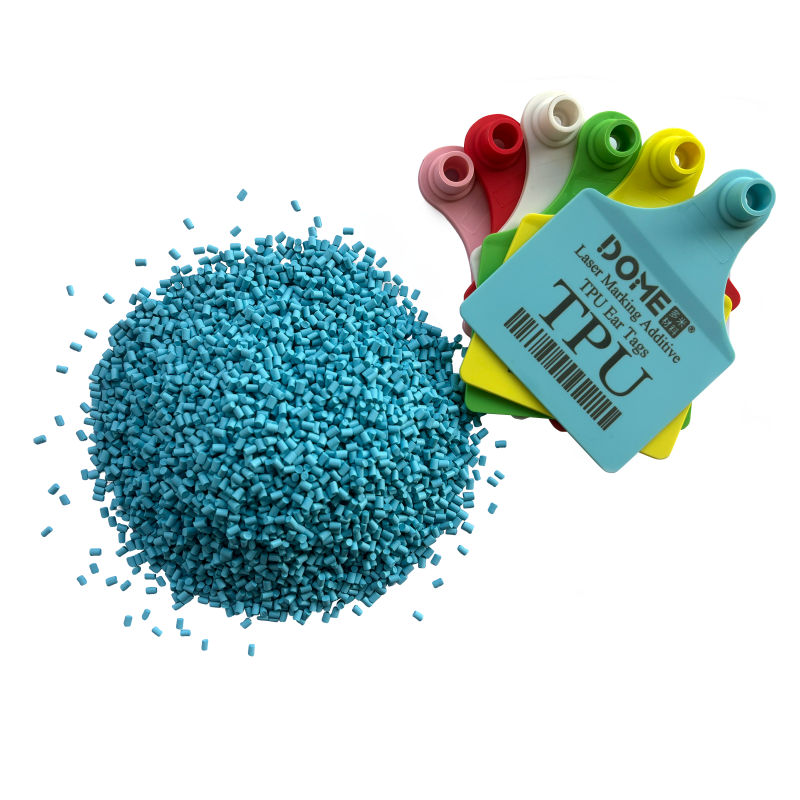WHAT IS AN ANTIMICROBIAL MASTERBATCH?
An antimicrobial masterbatch is a type of masterbatch that contains a concentrated blend of antimicrobial material encapsulated within a polymer carrier. The antimicrobial material is designed to inhibit the growth of microorganisms, such as bacteria, mold, and fungi, on the surface of treated materials. This technology helps to create surfaces that are more hygienic and resistant to microbial contamination. Antimicrobial masterbatches are commonly used in various industries, including healthcare, food packaging, consumer goods, and building materials, to enhance the antimicrobial properties of the final products.
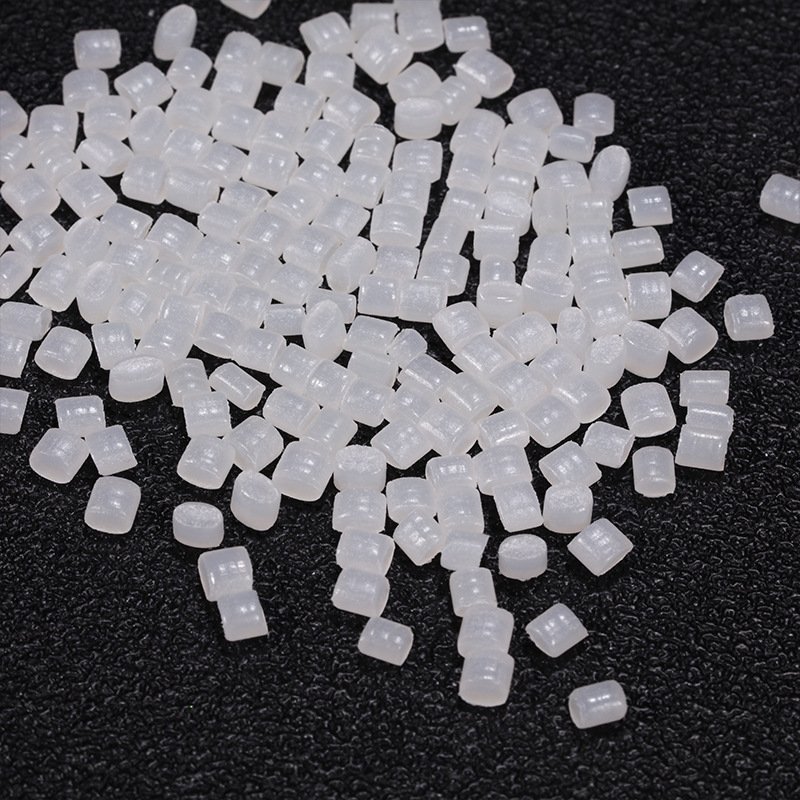
Silver ion antibacterial masterbatch PP antibacterial agent Nano-silver antibacterial masterbatch Plastic antibacterial agent PE antibacterial agent
APPLICATION SCOPE OF ANTIMICROBIAL MASTERBATCH
Antibacterial masterbatch is a versatile functional additive that has found its way into various industries due to its antimicrobial properties. Its applications span across different sectors, making it a crucial ingredient in many products.
In the textile industry, an antibacterial masterbatch is used for dyeing and processing fibers, yarns, and fabrics. This imparts antimicrobial properties to textiles, making them suitable for clothing, bedding, home decor textiles, and more. By incorporating antibacterial masterbatch into these products, manufacturers can offer consumers textiles that not only look good but also provide an added layer of protection against harmful bacteria.
In the medical and health sector, antibacterial masterbatch plays a vital role in inhibiting bacterial growth in medical supplies, surgical gowns, bed sheets, dressings, and other products. This helps reduce the risk of infections and ensures a safer environment for patients and healthcare professionals alike.
The daily necessities industry has also embraced the use of antibacterial masterbatch in products such as antibacterial hand wash, wipes, and detergents. By including this additive, manufacturers can enhance the products’ antibacterial effects, meeting consumers’ growing demand for a healthier lifestyle.
In building decoration, an antibacterial masterbatch can be incorporated into coatings, wallpapers, and other decorative materials to improve indoor environments’ antimicrobial properties. This not only enhances the aesthetics of the space but also helps safeguard people’s health by reducing the presence of harmful bacteria.
Even the automotive industry has started utilizing antibacterial masterbatch in interior materials to inhibit bacterial growth and improve the hygiene levels of vehicle interiors. This is especially important for shared vehicles such as taxis and ridesharing services, where multiple passengers come into contact with the same surfaces.

Overall, the application scope of antibacterial masterbatch is vast and continues to expand as more industries recognize the benefits it offers. By incorporating this functional additive into their products, manufacturers can enhance their offerings and provide consumers with safer and more hygienic solutions.
ADVANTAGES OF ANTIMICROBIAL MASTERBATCH
Antibacterial masterbatch is a powerful tool with numerous advantages that make it a valuable asset in various industries. One key advantage is its strong antimicrobial performance, which effectively inhibits the growth of bacteria and mold, reducing the risk of infections. This is particularly important in industries where hygiene and cleanliness are paramount.
Furthermore, antibacterial masterbatch is environmentally friendly and safe, as it is produced with strict control of harmful substances and complies with environmental standards. This ensures that products treated with antibacterial masterbatch are safe for use by consumers and workers alike.
Another advantage is the ease of processing associated with antibacterial masterbatch. It is compatible with conventional dyes and pigments, which means it can be seamlessly integrated into existing production processes without the need for significant changes. This makes it a convenient and cost-effective solution for companies looking to enhance the antimicrobial properties of their products.
Additionally, antibacterial masterbatch has high color fastness, meaning it is resistant to fading. This ensures the long-term effectiveness of the antimicrobial properties, which is crucial for maintaining product quality and performance over time.
In terms of product quality, antibacterial masterbatch can improve the overall quality and value of plastic products. By providing antimicrobial protection, it enhances the competitiveness and market appeal of these products, giving companies a unique selling point in a crowded marketplace.
Lastly, the wide application scope of antibacterial masterbatch makes it suitable for a variety of materials and product types, including fibers, yarns, fabrics, coatings, and more. This versatility allows companies in different industries to benefit from the antimicrobial properties of the masterbatch, improving the health and well-being of their customers.
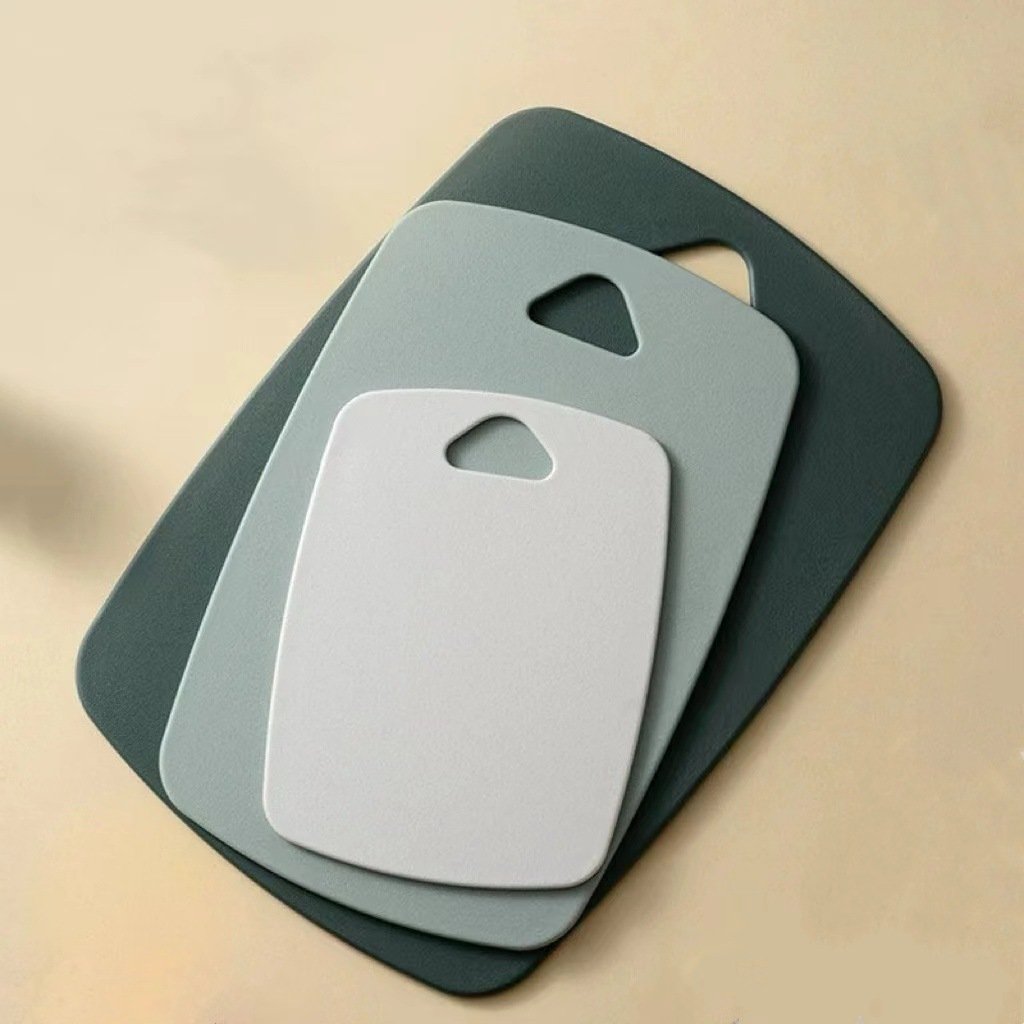
In conclusion, the numerous advantages of antibacterial masterbatch make it a valuable tool for industries looking to enhance the antimicrobial properties of their products. From its strong antimicrobial performance to its environmental safety and ease of processing, antibacterial masterbatch offers a range of benefits that can improve product quality and competitiveness.
HOW DO YOU SELECT AN ANTIBACTERIAL MASTERBATCH FOR YOUR APPLICATION?
Antibacterial masterbatches have become a popular choice for manufacturers looking to enhance the hygiene and safety of their products. Whether you are in the medical, food packaging, or consumer goods industry, choosing the right antibacterial masterbatch for your application is crucial.
Before making a decision, it is important to consider the following factors:
1. Type of antibacterial agent: There are various types of antibacterial agents available in masterbatches, such as silver, zinc, copper, and quaternary ammonium compounds. Each type has its own unique properties and effectiveness against different types of bacteria. It is essential to determine which antibacterial agent will best suit your application and target bacteria.
2. Compatibility with base material: It is important to ensure that the antibacterial masterbatch is compatible with the base material that you are using for your product. Some antibacterial agents may have adverse effects on certain materials, leading to degradation or loss of material properties. Conducting compatibility tests is essential to prevent any negative impacts on the final product.
3. Regulatory compliance: When selecting an antibacterial masterbatch, it is crucial to consider regulatory requirements and standards in your industry. Ensure that the antibacterial agent used in the master batch is approved for use in your specific application and complies with all relevant regulations and guidelines.
4. Effectiveness and durability: Assess the effectiveness of the antibacterial masterbatch in killing or inhibiting the growth of bacteria. Consider factors such as the spectrum of antibacterial activity, durability over time, and resistance to environmental factors. Conducting antimicrobial efficacy tests can help determine the performance of the masterbatch under real-life conditions.
5. Manufacturing process: Consider the impact of the antibacterial masterbatch on your manufacturing process. Ensure that it can be easily incorporated into your existing production line without causing any disruptions or complications. Compatibility with other additives and ease of processing are important factors to consider.
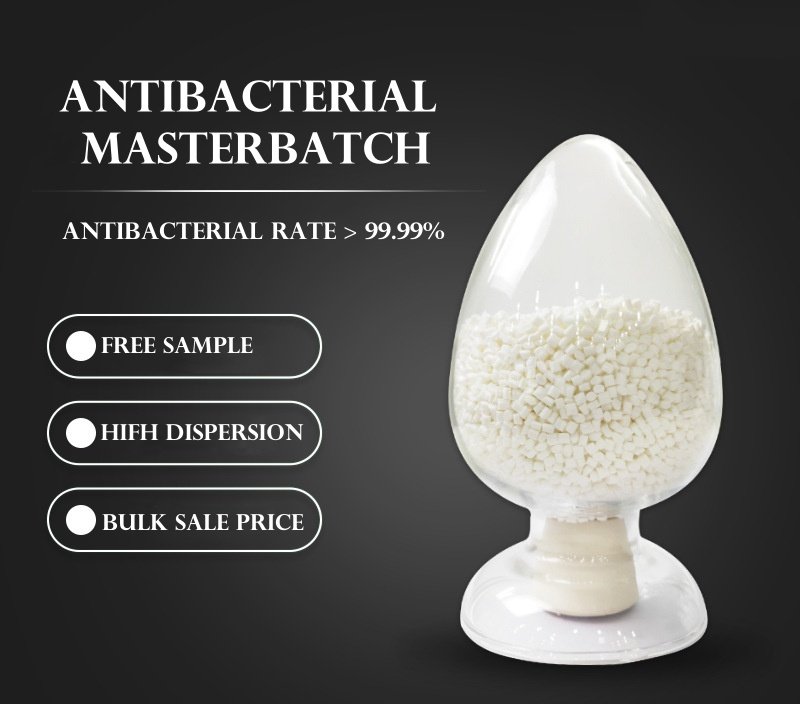
Choosing the appropriate antibacterial masterbatch for your needs involves weighing several important factors. These include the type of antibacterial agent, compatibility with the base material, adherence to regulations, efficiency, and production methods. Welcome to consult DOME Materials’ specialists and conduct comprehensive testing, which are essential steps to ensure you make a well-informed choice.

